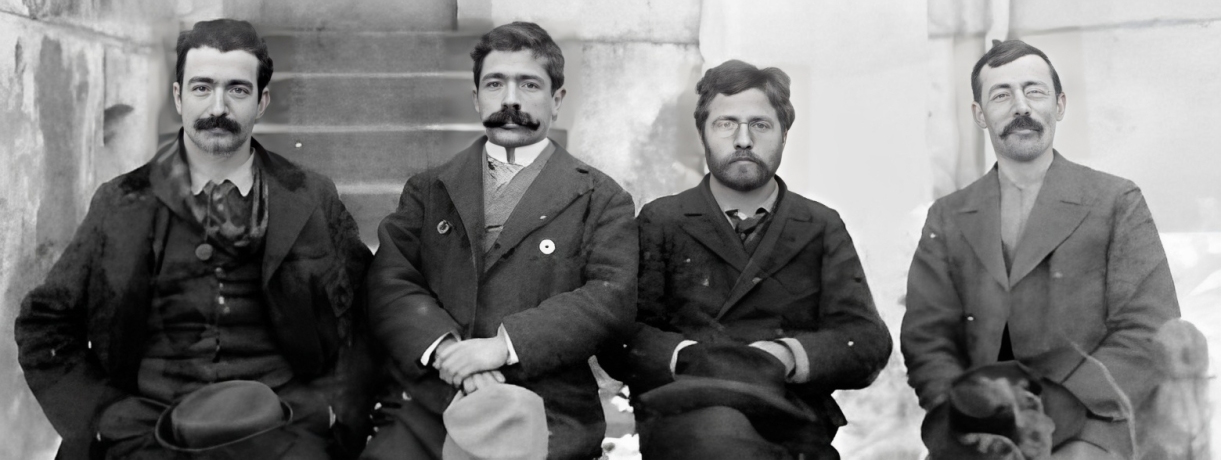Classical music in the mediamorphosis
Over 500 new music films were presented at the Berlin Avant Première.

"Listen with your Eyes" is the advertising slogan of EuroArts, the international production company for music films based in Berlin. And the phrase "Listen with your eyes" has become a catchphrase over the past decade when it comes to combining classical music with moving images. What has long been commonplace in the pop sector now also applies to so-called art music: video recordings are catching on.
With the Avant Premièrea trade fair that always takes place in Berlin in February under the direction of the Vienna International Music and Media Center, over 500 new music films from 38 countries have now been presented. A small selection can be seen in full length, and in the hour-long screening sessions, each production or distribution company and each television station can show excerpts from their highlights for a quarter of an hour. Afterwards, arrangements are made outside in the lobby: Who buys what from whom and on what terms. Not only concert and opera recordings are traded, a solid foundation of the music film business, but also jazz films, artist portraits, sophisticated documentaries and an astonishing number of dance films.
Dance
As is well known, dance is the only genre of the performing arts that can be represented exclusively on film. This time, the spectrum ranged from the obligatory Nutcracker to a challenging experiment: a coupling of the six Bach cello suites played by Jean-Guihen Queyras with choreography by Anna Teresa De Keersmaeker. The scenery and the six dancers are all in black and the cellist sits in the middle. The infinite variety of Bach's music enters into a fascinating connection with the movements of the bodies in the room, the camera movements forming an additional voice in this counterpoint. The cinematic work of art was produced under the title We are in the middle of life the Leipzig-based company Accentus together with NHK Tokyo, SWR and ARTE. Budget: "over 250,000".
Ticino
This time only the Swiss television Ticino as always with attractive projects. These included a documentary about Sergei Rachmaninov in Switzerland and his Villa Senar on Lake Lucerne, as well as Addio Lugano Bellaa fascinating search for traces of the Italian anarchists of the 19th century who found refuge in Ticino. They were not crazed terrorists, but sworn loners and outcasts who can be seen in yellowed photos. Ticino songwriters sing the nostalgic songs of that time.
Trends
There was no lack of topicality. A striking number of concert recordings showed solidarity with Ukraine in some way, even if it was only with a blue and yellow flag in the background. "Black music" is obviously not a cause for concern in music films; in jazz, pop and ethnic music it is part of everyday life, and "non-whites" are the majority in symphony orchestras from Tokyo to Mexico anyway. However, the phenomenon of "women conducting" is still an issue - with a double-edged effect. In the euphoria of finally being recognized, some young female conductors are tempted to make unflattering statements. This makes it sound as if the aspect of self-realization is more important to them than serving the work. Joana Mallwitz, for example, explains that she conducts in order to get to know herself better, and Alondra de la Parra likes to be flowery: "When I stand at the conductor's podium, I am a woman, I am also a man, I am a child, I am a sunset."
On the website medici.tvthe world's largest streaming portal for classical films with over 3,500 productions on offer, the legend of the special case of the female conductor is being debunked. Here, 46 "grandes cheffes d'orchestre" can be accessed with their recordings, from the experienced Marin Alsop to the young newcomer Glass Marcano from Venezuela. The supposedly still disadvantaged minority has long since arrived in the global music business.
Distribution
The distribution channels for classical films are increasingly shifting to the numerous digital channels, where you can find a huge streaming offer for ten francs a month in line with the Netflix principle; according to leading industry representatives, the physical products DVD and Blu-ray will only survive as collector's items. Live performances in concert halls and opera houses may have some advantages over media playback, but the "mediamorphosis" of music, as music sociologist Kurt Blaukopf once called it, is unstoppable. And it is the decisive driving force behind the current cultural change, enabling new audiences to access classical music and also opening up new perspectives for music education. A democratization effect that, from an insider's point of view, should not be underestimated. The Berlin Avant Première offers excellent illustrative material in this respect.
_______________________________________








